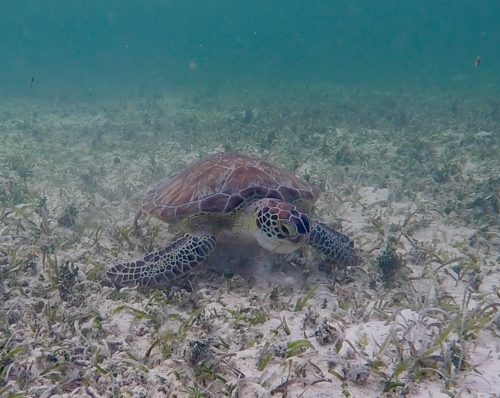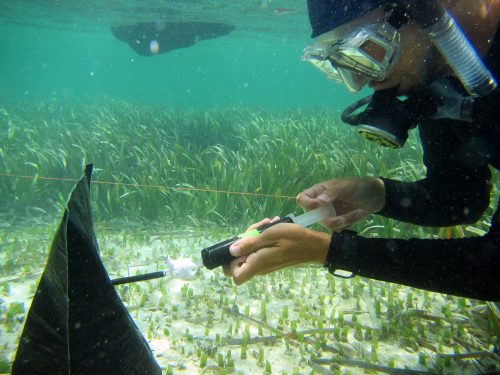Green turtles consume seagrasses as a major part of their diet across much of their global range. As green turtle populations begin to recover and increase in abundance, it is critical to understand how seagrass meadows – now greatly diminished as a result of human activities – will be able to support green turtle populations.

With successful conservation leading to increasing green turtle populations in some areas, seagrasses will increasingly be subjected to grazing pressure in addition to anthropogenic disturbances. Although seagrasses evolved under grazing pressure of green turtles, seagrasses have been released from this grazing pressure for the past few centuries as a result of overexploitation of green turtles by humans.
Green turtles do not graze at random in seagrass meadows. They establish feeding plots in which they forage by cropping seagrass blades at or near the sediment surface and repeatedly re-grazing new growth within these plots. By foraging in this manner, they have a higher quality diet, but they also greatly alter the structure of seagrass meadows.

With support from the Reverse the Decline of Florida Sea Turtles program, Robert Johnson, PhD graduate student in the ACCSTR, has made a major advance in green turtle conservation in response to calls to cull green turtles and re-open green turtle harvests because there is a belief that green turtles are destroying seagrass meadows and all of the “ecological services” that seagrasses provide to humans. One study raised the alarm that the huge quantities of carbon created by seagrasses and stored in the substrates under seagrass meadows would be released and have a great effect on global warming by “overgrazing” by green turtles. Robert has just submitted a manuscript for publication demonstrating that no such loss occurs, even in seagrass pastures constantly cropped for over a year. Similar studies addressing other critical “ecological services” of seagrasses that may be affected by green turtle grazing – substrate stabilization and nursery areas for fish species – are now underway by ACCSTR graduate students with support from the Reverse the Decline of Florida Sea Turtles program.